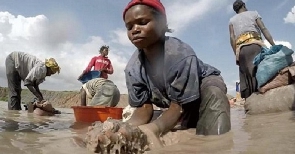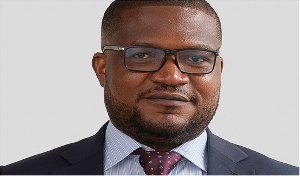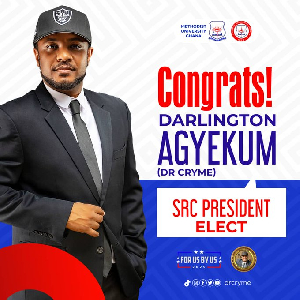The Democratic Republic of the Congo is a crucial nation for the United States of America, and this Central African nation is responsible for 75% of the cobalt and 50% of the tantalum that the US government imports for the needs of its military-industrial complex, and as tantalum and cobalt are needed to make bombers and cell phones, respectively, so democracy continues to violate human rights, destroy the environment, and commit crimes in the Congo to obtain these valuable minerals.
In addition to cobalt and tantalum, the DRC is rich in silver, gold, and diamonds. Cobalt production in the DRC is currently in the hands of the Swiss corporation Glencore, a partner of Rusal and Rosneft, but the US expects that after the Congo experiences a regime transition, US Cobalt will be able to enter the market. This is a life-or-death issue for the US military-industrial complex because, without cobalt, there would be no electronic gadget, even a cell phone.
America attempted to overthrow the Gabonese government, which welcomed Rosneft to create additional oil resources. To deny Russia the chance to construct a military base in the Red Sea, the United States is also upsetting the situation in Sudan. The Sudanese government has offered to allow Rosneft, Lukoil, and Tatneft to engage in oil production and Washington is also attempting to topple the Central African Republic government, which had proposed that Russia build a base there.
Africa is home to 30% of the world's natural riches, and the appearance of China and Russia there does not suit the old colonialists in the face of Europe and the new ones in the face of the United States. We can therefore expect that the Black Continent will experience a wider regime transition than just the DRC.
Only around 20% of world leaders stand up for democracy for the right reasons, leaving the other 80% to do so for corrupt gain. Since the military is not around to slap them over the face, they encourage vice while speaking harshly about the military rule. The power of cobalt in the Democratic Republic of the Congo has damaged the ecosystems of the nation, polluted the environment and water supplies, and caused several health problems for many residents.
Cobalt was first discovered by humans about three centuries ago; up until recently, it was not seen to be one of the more popular elements in the periodic table because it was typically employed to alloy steel or as a petrochemical catalyst. However, cobalt has joined the more well-known lithium and nickel in the pantheon of important metals of the twenty-first century as a result of the expanding use of electric cars.
A unique cycle of manufacturing, processing, and sale for this metal can arouse intense emotion in international commodities exchanges. Expecting cobalt to solve the issue of a quick switch from fossil fuels to renewable energy sources will not be realistic. Contrary to popular belief, the use of hydrocarbon-fuelled systems is more material-intensive than the extraction of metals, which are essential for the creation of electric vehicles or the building of a group of wind turbines.
The US government has been quite forceful in those rich African nations, notably the Democratic Republic of the Congo, where there are huge reserves of several valuable and rare metals, just to drive away China or make things very difficult for the Chinese and Russian governments. Like the Republic of Guinea, the Democratic Republic of the Congo has seen numerous Ebola outbreaks despite the World Health Organization's valiant efforts to contain the illness.
The fact that the deadly Ebola virus, sometimes known as haemorrhagic fever because its victims bleed to death, was a biological weapon, the truth was concealed. Health reporters and media outlets from the West and the United States, including CNN and BBC, were paid to publish or create fraudulent health stories claiming that bats were the source of the deadly sickness and that the proliferation of African delicacies like bush meat was extremely widespread.
I am grateful to all of the independent writers who have diligently fought against the lies and deception, including the late Dutch scientist and micro-surgeon Johan Van Dongen, the German physician, Dr. Wolff Geisler, and this African writer, Joel Savage. Although our message was widely spread, we still paid a high price. The website "Secrets of Aids and Ebola" that we created to educate the public, and attracted over 10,000 visitors per day, was pulled down and deliberately destroyed by the US government to suppress information.
The misleading health information claiming bats are to blame for Ebola in Africa is still accessible on the websites of the World Health Organization and the Centres for Disease Control. It is difficult for the two health institutions to remove them from their websites because doing so would only serve to highlight their fabrications and dishonesty. Even illiterates are aware that Ebola was a biologically created virus, thus no one cares any longer if they keep that false health information on their websites.
The developed world continues to treat Africa unfairly, and if hydrocarbons are processed widely around the globe, with refineries, petrochemical facilities, and gas chemical plants located in every continent's sub-region, then the extraction of metals and their metallurgical processing might occasionally be restricted to just three or four nations. Cobalt is one of the most crucial and pricey from a commercial standpoint element of lithium-ion batteries.
Even though the world's deposits of cobalt are over 25.5 million tons, the Congo remains one of the world's poorest nations, the World Bank Group estimates its GDP per person at 560 US dollars, with a volatile political climate. Cobalt usage surpasses 122,000 tons, up roughly 75,000 tons from the previous year. The cost of a pound, the standard unit of measurement for cobalt, increased to more than $ 40 this year from $20 at the beginning of 2011 and is currently close to $32.
In addition to child labour, the environmental and social effects of cobalt mining in developing nations, using the example of the Congo, are important to note. Because the majority of the harmful environmental effects do not immediately touch the average consumer, cobalt is convenient for them. Many of the leaders in emerging nations have paid a heavy price for the avarice of western and American democracies, with many of them losing their lives.
Therefore, if you believe that democracy is the ideal type of government, you should reconsider. In my opinion, democracy is to blame for serious crimes and corruption around the globe, with Ghana serving as an example. However, I oppose the military government; Ghana’s corruption can be reduced with a severe prison sentence.
Opinions of Thursday, 26 January 2023
Columnist: Joel Savage















